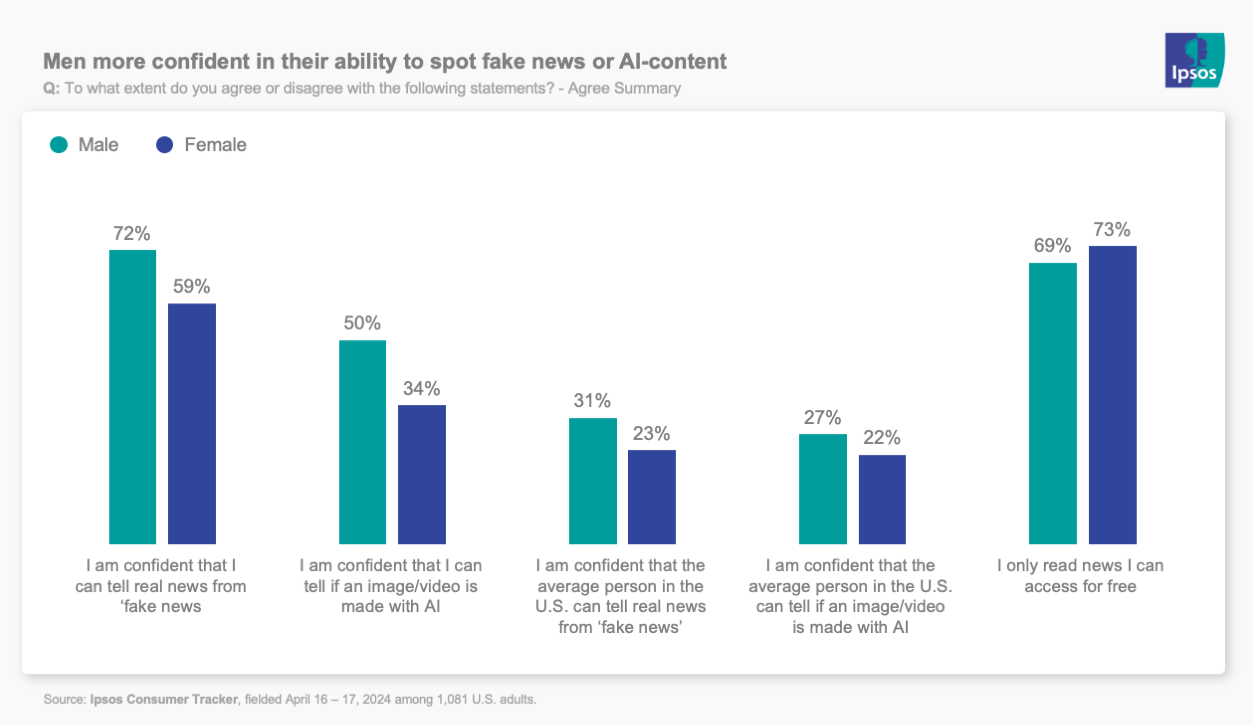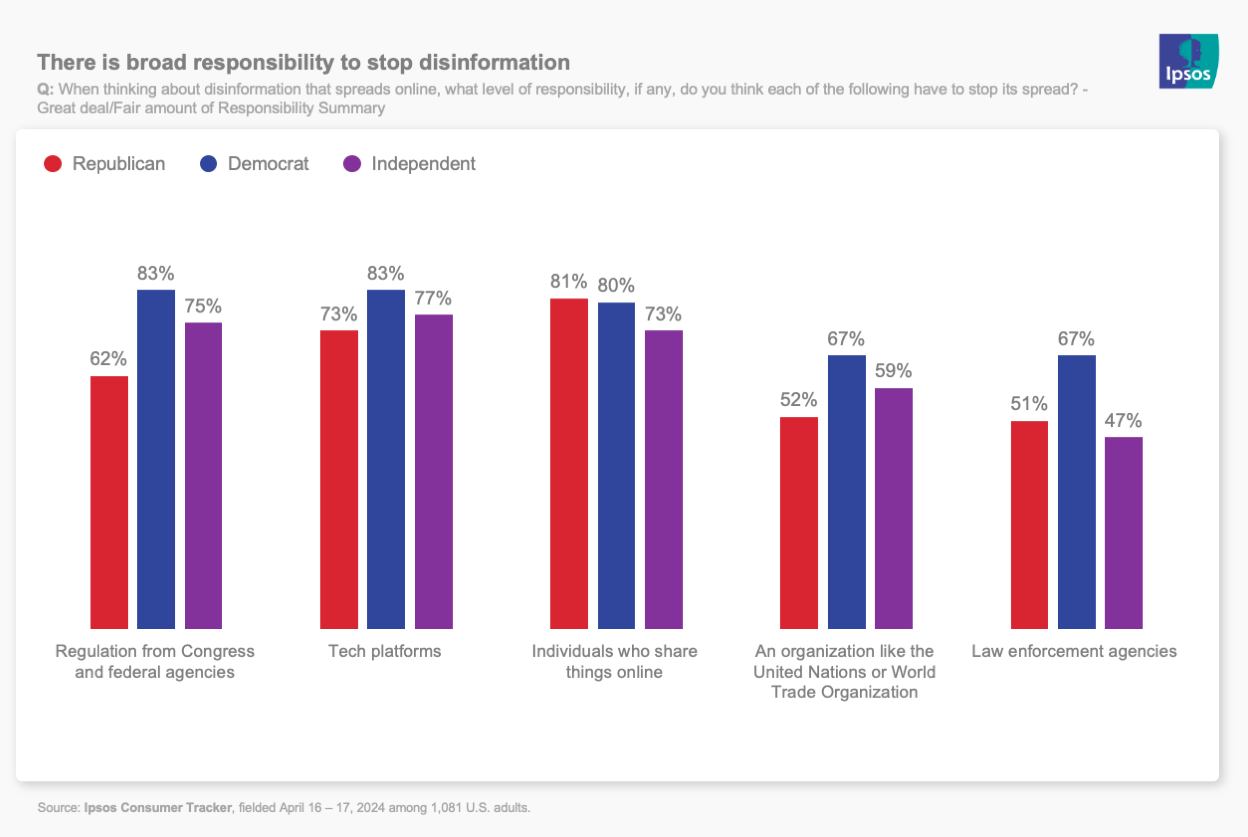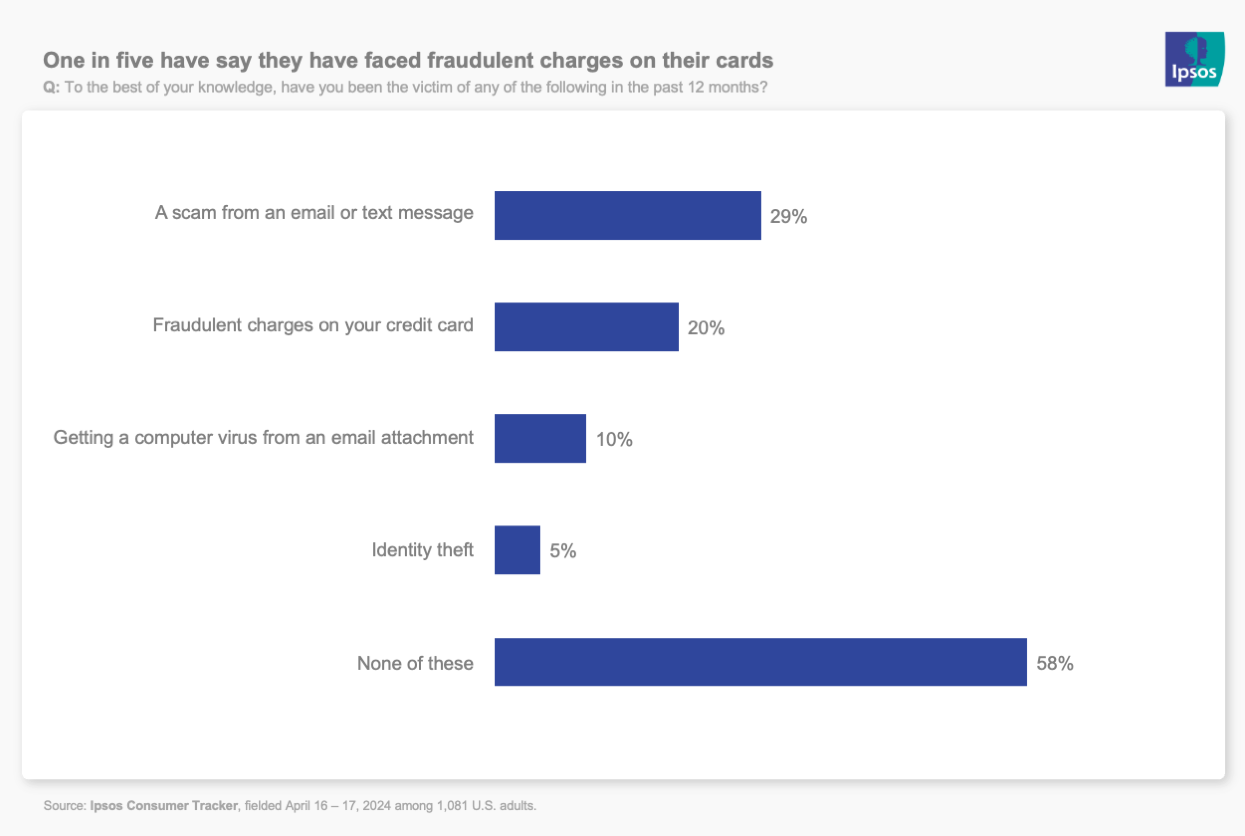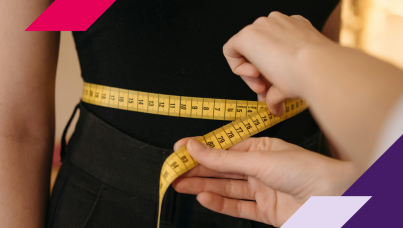Men are more confident in their ability to spot fake news or AI content
The Ipsos Consumer Tracker asks Americans questions about culture, the economy and the forces that shape our lives. Here's one thing we learned this week.

Why we asked about AI-created and disinformation content: Disinformation is a big concern for folks, especially with the growth of AI. And reports of Russian election are proliferating in this biggest election year in history. We had a question we could trend from an Ipsos Global Advisor survey (Trust misplaced?) and What the Future’s Truth issue about “fake news” but we wanted to add in some new questions about AI, too.
What we found: Men are quite confident (72%) in their ability to tell real news from fake news than women (59%). We see a similar gender gap when it comes to our perceived ability to tell content that was created by AI. However, we are overall much less confident with only 50% of men and 34% people expressing confidence. In both cases we have very little confidence in our fellow citizens. It’s hard to say if it’s a positive or negative that, despite increased sophistication of disinformation campaigns, our perceived ability to spot it has actually increased since we asked in 2020’s global survey. What is certainly problematic is the increase in people who say they only read news they can access for free (71% now, vs. 63% in 2020), which is more likely to be low-quality and subject to disinformation.

There is broad responsibility to stop disinformation
Why we asked: So whose responsibility is it to help curb disinformation?
What we found: There’s broad agreement that everyone has a responsibility to stop disinformation: platforms, governments and NGOs, law enforcement and individuals. For the most part, demographic splits on that are pretty even. But when it comes to party ID we see that Democrats put more responsibility on all parties, except for individuals, whom 80% of people from both sides think are responsible.

One in five have say they have faced fraudulent charges on their cards
Why we asked: Disinformation is of course just one kind of online fraud. There are other more personal and economic types of fraud and scam.
What we found: One in five say they’ve had to deal with fraudulent charges on their credit cards. Slightly more (29%) say they have gotten scam emails and texts, which suggests to me that 71% of people either don’t check their emails, have better filters than I do, or just don’t realize that Nigerian princes don’t really want to give them money. Only 5% report being victims of identity theft. And nearly six in 10 say they haven’t been victim of any of these things.
More insights from this wave of the Ipsos Consumer Tracker:
Why Americans think streaming TV is only getting better
Strong generational differences emerge in our news consumption
The Ipsos Care-o-Meter: What does America know about vs. what does America care about?



